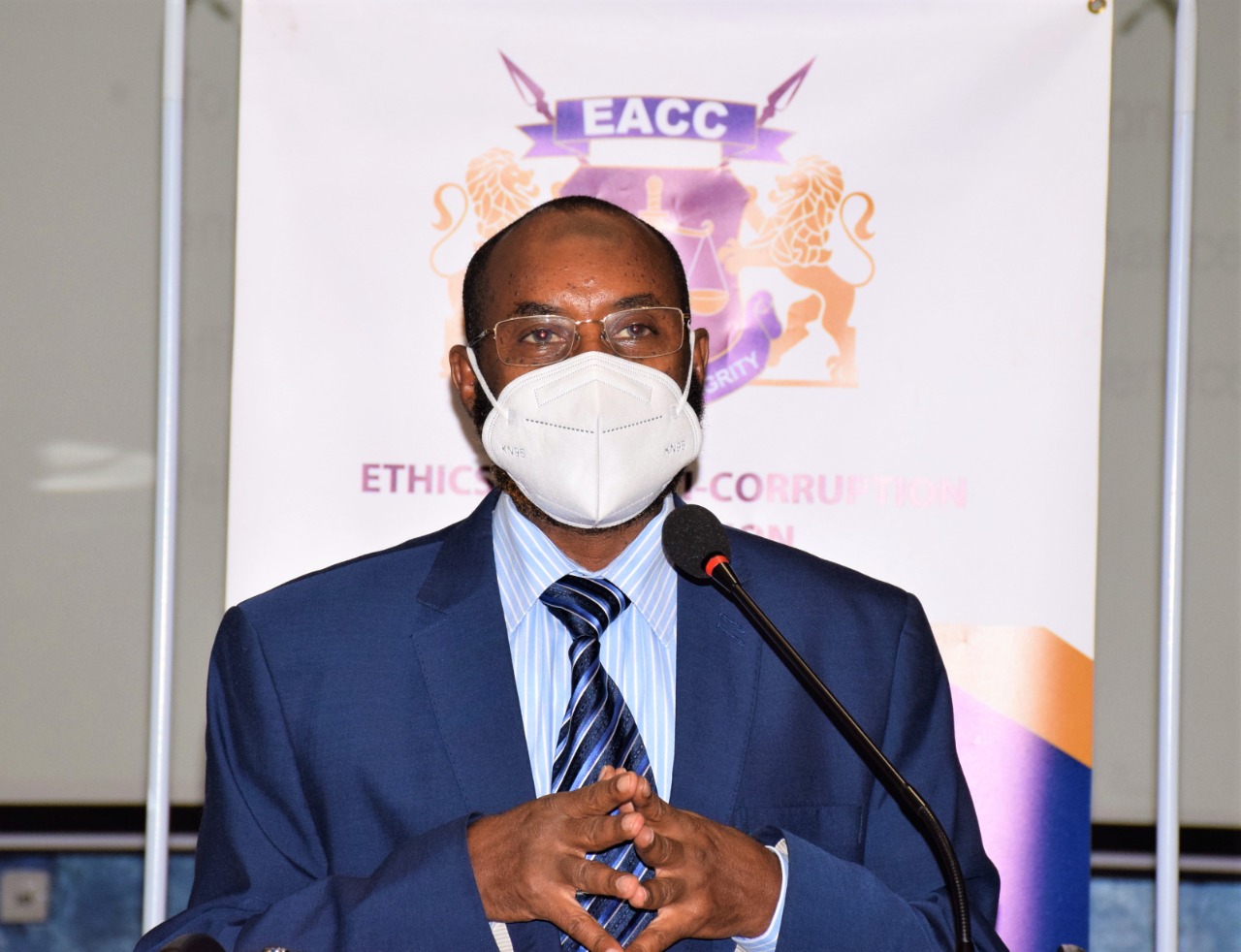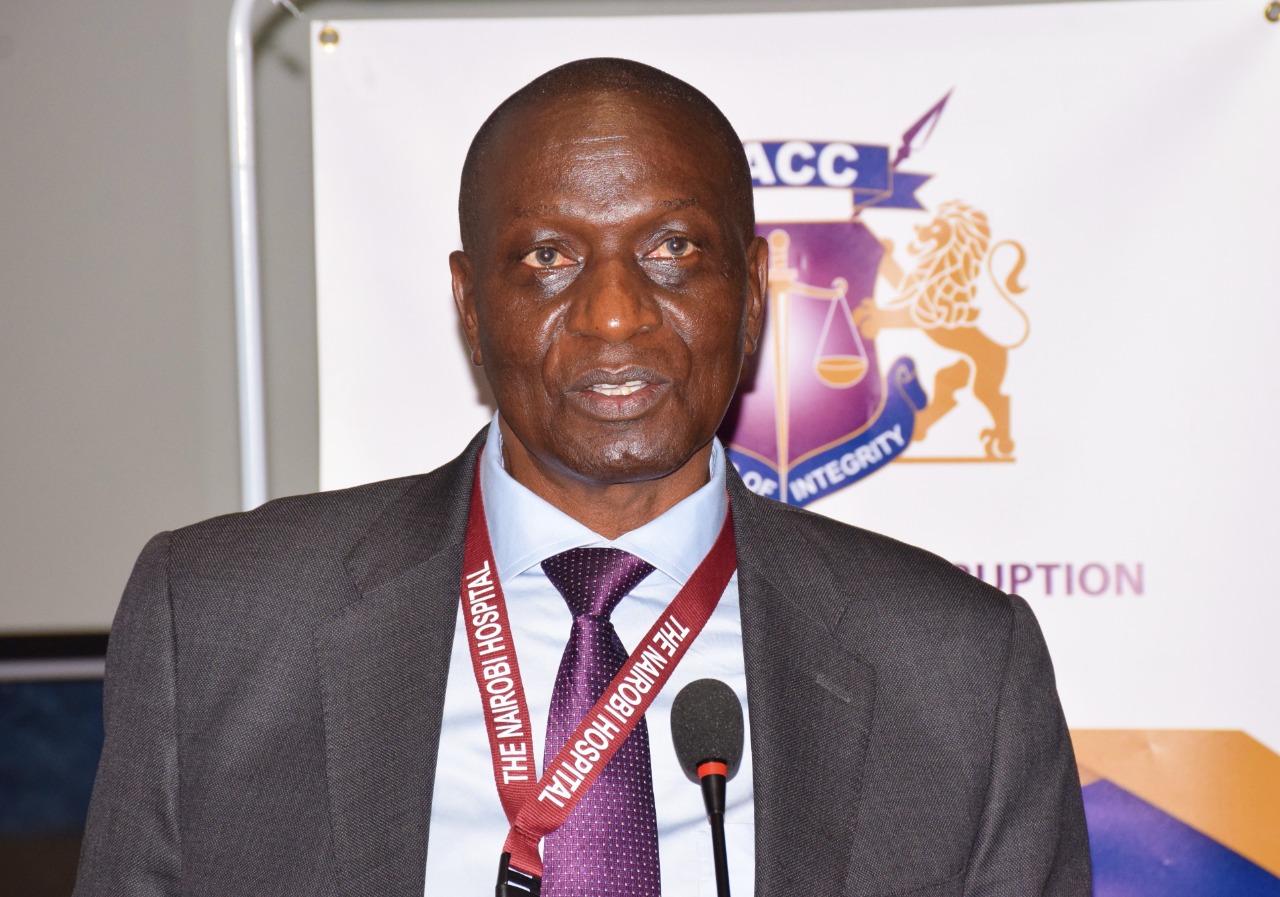Private Sector Key in Graft War
12:03:2021: Nairobi Hospital has become the latest beneficiary of anti-corruption training in the private sector. Facilitated by the Ethics and Anti-Corruption Commission (EACC), the training targets senior management and aims to give them skills, knowledge and attitudes to develop and implement integrity compliance tools to tackle corruption and unethical conduct within the institution.
Speaking during the official opening, Commissioner Dr. Dabar Maalim lauded the hospital for initiating and committing time to undertake the training at a time when many health facilities have scaled down such extra-operational activities due to the Covid-19 pandemic. He welcomed this as a demonstration of commitment to fostering a culture of ethics and integrity, and recognition that corruption remains a serious problem to all business enterprises.

“The Commission appreciates such efforts as they resonate very well with our continued call for all agencies and sectors to take up their responsibilities in the fight against corruption,” he said.
Dr. Maalim highlighted the recent launch of the National Ethics and Anti-Corruption Policy and enactment of the Bribery Act 2016 as some of the Government’s progressive initiatives in fighting graft.The Bribery Act 2016 is awaiting approval of guidelines and regulations by Parliament. Once in operation, it will enhance engagements between EACC and the private sector in the graft fight.
The Commissioner identified insurance fraud as a major problem in the medical sector and urged the hospital to work with stakeholders to seal this loophole. “Corporate fraud, collusion with external actors to defraud hospitals and medical insurance schemes, professional misconduct by medical personnel and other unethical practices are common place in our healthcare facilities,” he said.
EACC recommended the following measures to enhance the prevention of corruption and unethical conduct at the institution:
- Designate a unit within the organizational structure to continuously institutionalize ethics and spearhead integrity and anti-corruption programmes in the Hospital.
- Infuse ethics and integrity management, and corruption prevention in all operations and policies, including in all branches and outlets.
- Conduct corruption risk assessment periodically to detect loopholes that may allow corruption and promptly seal them.
- Develop and implement strong welfare schemes to ensure maximum productivity of employees, to minimize distractions from the calling to serve.
- Develop or strengthen employee code of conduct to raise the organizational ethical bar, as well as consider a code governing business partners.
- Establish effective mechanisms for reporting corruption and act on all reported forms of corruption within the hospital, and where appropriate refer matters to EACC or other law enforcement agencies for further action.
The hospital’s Chief Executive Officer, Mr. James Nyamongo, urged staff to uphold integrity to ensure quality service.

Statutory Forms
Publication & Reports

